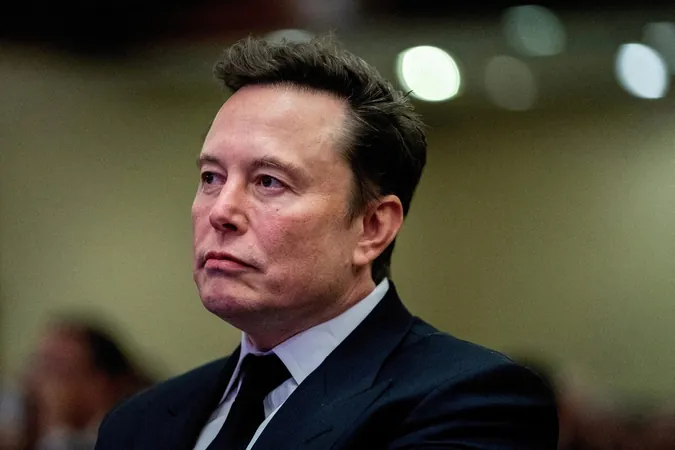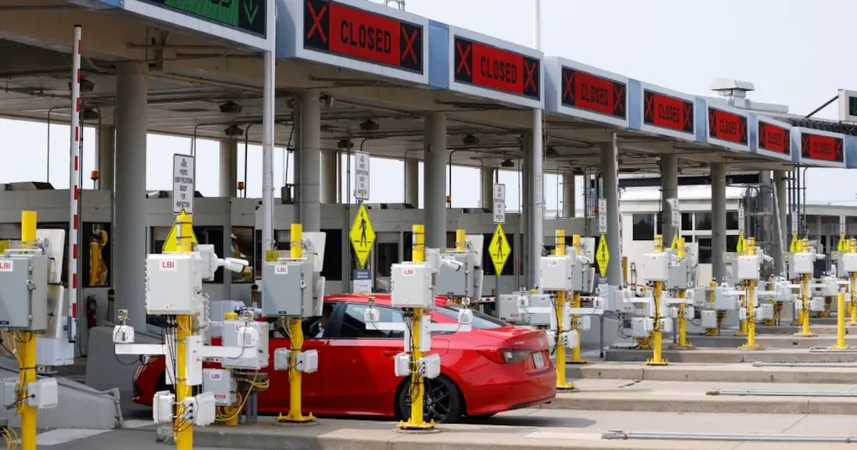
Elon Musk Sparks Controversy by Backing Germany's AfD Party in Opinion Piece
2024-12-28
Author: Jacob
Musk's Endorsement of the AfD
In a surprising turn of events, billionaire entrepreneur Elon Musk has openly endorsed the Alternative for Germany (AfD) party in a guest opinion piece for the widely respected German newspaper, Welt am Sonntag. The controversial article, published online on Saturday, has led to the resignation of the newspaper's commentary editor, Eva Marie Kogel, who left in protest against Musk's assertions.
Musk's Statements
In his piece, Musk reiterated his previous comments made on the social media platform X, stating that "only the AfD can save Germany." He challenged the portrayal of the AfD as a right-wing extremist party, arguing, "The portrayal of the AfD as right-wing extremist is clearly false, considering that Alice Weidel, the party’s leader, has a same-sex partner from Sri Lanka! Does that sound like Hitler to you? Please!"
Context of Political Shifts in Germany
This endorsement comes amid significant political shifts in Germany, where the AfD has made history by becoming the first far-right party to win a state election in the postwar period. However, the party has faced scrutiny, with Germany’s domestic intelligence agency labeling it as a suspected case of extremism since 2021.
Reactions to Musk's Opinion Piece
The reaction to Musk's opinion piece has been swift and divisive. Shortly after its publication, Kogel announced her resignation on X, expressing her discomfort with the piece's implications. In a joint statement, the newspaper's editor-in-chief designate, Jan Philipp Burgard, and Ulf Poschardt, who will take over as publisher in January, defended the publication of polarizing opinions, stating, "Democracy and journalism thrive on freedom of expression."
Concerns Over AfD's Policies
Musk’s controversial viewpoints sparked a flurry of reactions, accumulating around 340 comments just hours after release. In a rebuttal, Burgard acknowledged that while Musk's observations may have merit, his solution—that the AfD is the only viable option for Germany—was flawed. He referred to the party's intentions to leave the European Union, pursue closer ties with Russia, and appease China, raising concerns about the implications of such policies.
The AfD's Rising Popularity
As Germany approaches crucial elections set for February 23, following the collapse of Chancellor Olaf Scholz's coalition government, the AfD's rising popularity has positioned it as a key player in the political landscape. Current polls indicate the AfD in second place, potentially disrupting the formation of a center-right or center-left majority government. Despite this, mainstream centrist parties have publicly committed to rejecting any cooperation with the AfD at the national level.
The Broader Implications
As political dynamics continue to evolve, Musk's intervention in German politics raises critical questions about the intersection of international influence and local governance, igniting debates on the delicate balance between free speech and societal responsibility.









 Brasil (PT)
Brasil (PT)
 Canada (EN)
Canada (EN)
 Chile (ES)
Chile (ES)
 España (ES)
España (ES)
 France (FR)
France (FR)
 Hong Kong (EN)
Hong Kong (EN)
 Italia (IT)
Italia (IT)
 日本 (JA)
日本 (JA)
 Magyarország (HU)
Magyarország (HU)
 Norge (NO)
Norge (NO)
 Polska (PL)
Polska (PL)
 Schweiz (DE)
Schweiz (DE)
 Singapore (EN)
Singapore (EN)
 Sverige (SV)
Sverige (SV)
 Suomi (FI)
Suomi (FI)
 Türkiye (TR)
Türkiye (TR)